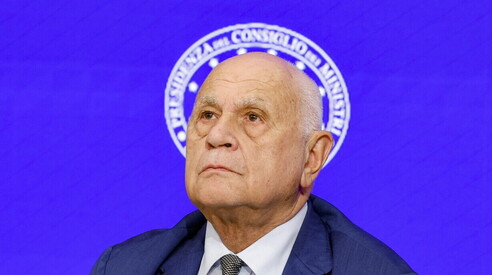Nordio and the forgotten reform on smartphone seizures


Ansa photo
the case
In recent weeks, dozens of chats, often criminally irrelevant, have been published in newspapers, involving individuals under investigation (and not) involved in the Milan urban planning investigation. This is due to a huge regulatory gap that grants prosecutors immense powers. And the reform announced by the minister is blocked.
On the same topic:
Dozens of chats exchanged between individuals under investigation (and not) in the Milanese urban planning investigation have been published in major Italian newspapers in recent weeks. Many of these conversations are criminally irrelevant. This is not an isolated case. The investigation into alleged illegal procurement by Matteo Ricci, the center-left candidate for president of the Marche region, also centers on conversations between the former mayor of Pesaro and one of his associates. The investigation that led to the resignation of the governor of Calabria, Roberto Occhiuto, also revolves around "sensitive" chats. In short, from north to south of the country, prosecutors are unleashing investigations based on the seizure of smartphones and electronic devices, extracting the conversations contained within them (such as those on WhatsApp) . The reason is simple: in Italy, prosecutors can seize cell phones and extract copies of all the data contained therein without authorization from the preliminary investigations judge , as is normally the case with wiretaps and the acquisition of phone records. This is a legal black hole that conflicts with European Directive No. 680 of 2016 and several rulings by the Court of Justice of the European Union, which require prior review by a third-party authority before granting access to personal data contained in electronic devices.
This problem is well known to Justice Minister Carlo Nordio, who in February 2024 announced a reform of the rules governing smartphone seizures , explaining that "today, cell phones contain more than just conversations, they contain an entire life," and this life "cannot be placed in the hands of a public prosecutor who, with a signature, takes possession of it and perhaps subsequently fails to monitor its disclosure." "A cell phone or smartphone contains medical records, tax returns, intimate conversations, and images—not only of the person seized, but of their friends and friends of friends," Nordio emphasized, adding: "Technology today allows for this concentration of information, which is then absorbed into the cell phone and can be seized with the sole signature of a public prosecutor. This is unheard of and violates every human and divine rule, and Article 15 of the Constitution, which protects the confidentiality of conversations."
The issue has become even more relevant following the Constitutional Court's ruling no. 170/2023, which equated electronic messages—emails, text messages, WhatsApp, and similar—to correspondence protected by Article 15 of the Constitution.
Based on all of this, in April 2024 the Senate approved a bill with Pierantonio Zanettin (Forza Italia) and Giulia Bongiorno (Lega) as first signatories , with the Democratic Party abstaining and the Five Star Movement voting against. The bill stipulates that the prosecutor can no longer independently order the seizure of a smartphone or computer device, but must seek authorization from the investigating judge (except in urgent cases). Within five days, a procedure will then be carried out to duplicate the data (which does not constitute electronic or computer communications) contained on the smartphone or device. Finally, the prosecutor may request the investigating judge to seize any data deemed criminally relevant. The entire electronic duplicate must be stored in a manner that ensures absolute confidentiality.
The procedure, though cumbersome and with some room for improvement, would certainly have prevented the shocking leak of chats related to the urban planning investigation from the Milan prosecutor's office, with subsequent publication in newspapers. However, for a year and a half, after being approved by the Senate, the bill has been stalled in the Chamber of Deputies' Justice Committee.
"I'm rather disheartened," Zanettin admitted to Il Foglio. "After being championed by Nordio, the proposal has now been languishing in the Chamber for a year and a half. No one can understand why, yet we're increasingly witnessing media storms based on the publication of chats extracted during the investigations, full of jokes whose evidentiary and evidentiary value seems very weak to me." Forza Italia MP Enrico Costa also described himself as "perplexed" by the parliamentary stalemate.
Certainly, the broadsides launched last May at a hearing in the Chamber of Deputies by national anti-mafia prosecutor Giovanni Melillo , who claimed that the reform "would have a disastrous impact on mafia investigations," did not help. The fight against the mafia has always been an untouchable tenet for the Brothers of Italy, and in the parliamentary corridors, many suspect that it was Meloni's party itself that forced a halt to the discussion of the Zanettin bill . Meanwhile, however, newspapers continue to fill with criminally irrelevant chats, resulting in the smearing of those involved, sometimes not even under investigation.
More on these topics:
ilmanifesto





